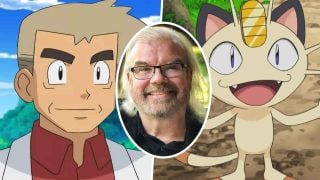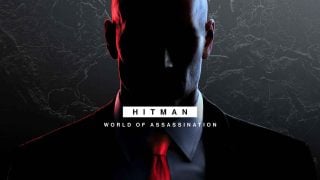Perfection is thought to be beyond the realm of human attainability. “Nobody’s perfect” goes the old aphorism. It is only understandable — as human beings we are subject to foibles, foils, desire and base instinct that works against our sense of what would be good for us. We all sneak snacks at midnight from the kitchen, skip leg day, or occasionally turn a blind eye to the injustices of society so that we might have a moment’s reprieve. But if to be human is to be imperfect, can we then say that which is not human can therefore be perfect?
Kirby. カービィ. A little two syllable puffball. As simple to draw as he is to hug. As easy to understand as he is to love. His form is edgeless, round, molded from a Promethean clay of far more magnanimous quality than that which humankind was formed from eons ago. Each time I behold his form of such perfect curvature, equally elastic and soft, with wide eyes and cheek blushes and the perfect stubby little limbs, I’m left to breathlessly wonder — is Kirby the most perfect being to ever exist?

There are nonbelievers out there, of course. Indeed, the act of morally examining Kirby is common practice, many people’s first entry into thinking critically about the puffball. While often delivered in a jokey tone, many are keen to point out the degree to which he inhales and swallows enemies before annihilating countless more with copy abilities. In one adventure (Squeak Squad) Kirby even does such acts for one single slice of cake. Is this not inappropriate retribution? Is this hero not a villain?
Such propaganda could come from one of the eldritch horrors he slays. On countless occasions Kirby has fought on the side of good, only occasionally erring in judgment. He has fought King Dedede numerous times and often assumes him to be behind almost every incident in Dream Land — a strong anti-monarchist take, even if often misinformed. He has saved the universe from galactic threats of unfathomable dread, with the suggestion that he may have been a mutation of one of them. Even in Squeak Squad there is a clear moral incentive — Kirby is not merely trying to take a random piece of cake, but one that was stolen from him. Perhaps it is fortune that sometimes leads Kirby down the path of destroying elder gods, but it is just as often righteousness and protection.

Even so, it appears that Kirby would be more interested in the ends rather than the means, given the large quantity of enemies he assaults in his quest for peace. One would almost be tempted to label him a Nietzchean ubermensch, a being who exists beyond our paltry notions of morality — but I find such a notion far too cynical. Rather, Kirby is pure Id without Ego, always committing to the first action that he believes would help, regardless of ramifications. He is easily duped into releasing cosmic horrors, but just as easily defeats them. He seeks not to transcend morality but to exhibit it in its purest form, borne of emotional imperative rather than rational thought. When Dream Land is invaded? When the sun and the moon fight? When Dedede steals food from the citizenry? Kirby immediately launches into action to do the right thing. In his path he may destroy many, but it is in the service of a greater good. In this sense we may see Kirby as a firm rejector of Kant’s Categorical Imperative — the morality of his actions are not devoid of context but in fact rely entirely upon them.
When there are none who impugn upon the land, upon his livelihood, we see Kirby at his foremost — at peace, content to be at one with the world. He achieved self-actualization long ago, not needing to search for some grand meaning in life or metaphysical epistemology. He provides a model for us all to look at the world, for us to defeat all our external forces and find contentment at last. But perhaps this is the way in which Kirby is most human — he can never be at peace forever. There will always be another war, another conflict, for him to take up arms against. But he will do so without fail. There is no flaw in Kirby. He acts for that which he believes is good without question.

So far we have examined Kirby largely from a Watsonian perspective, diegetically within the constraints of the story — but now we must pan out to examine him Doylistically, as an audience engaging with a text. We find Kirby so pure, so wholesome because he represents what we wish to be at our most free and virtuous — not constrained by systems of oppression, but fighting to dismantle them; one who finds just as much value (if not more) in Sleep than weapons of warfare; and just the cutest little button we could imagine. It doesn’t matter if Kirby loses his limbs or divides into ten or turns into yarn — his very essence does not change. He is a bringer of joy to our reality, beyond evil but not beyond good.
John Blyth Barrymore, talking about The Pipe Strip, exactly exemplifies what I feel about Kirby without irony: “Everything about it is perfect. I can only describe it as a miracle creation, something came together… the elements aligned… It is like the comets, the cosmic orchestra that is up there over your head… The immense, enormous void is working all for one thing, to tell you one thing… Gas and rock, and purity, and nothing. I will say this… When I see the pipe strip… and I mean every single time I look at the lines, the colors, the shapes that make up the three panel comic… I see perfection.”

Every time I look at the lines, the colors, the shapes that make up Kirby… I see perfection. In this world, we need examples of what not to do, what not to be, how not to act. But so too do we need moral paragons who can show us who we could be. So we must cherish him. Especially because his games are really, really good.
Kirby and the Forgotten Land is out now. Praise be.
Leave a Comment


